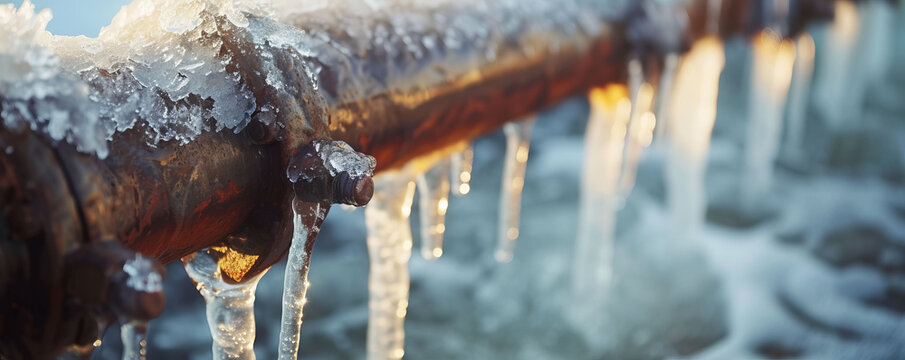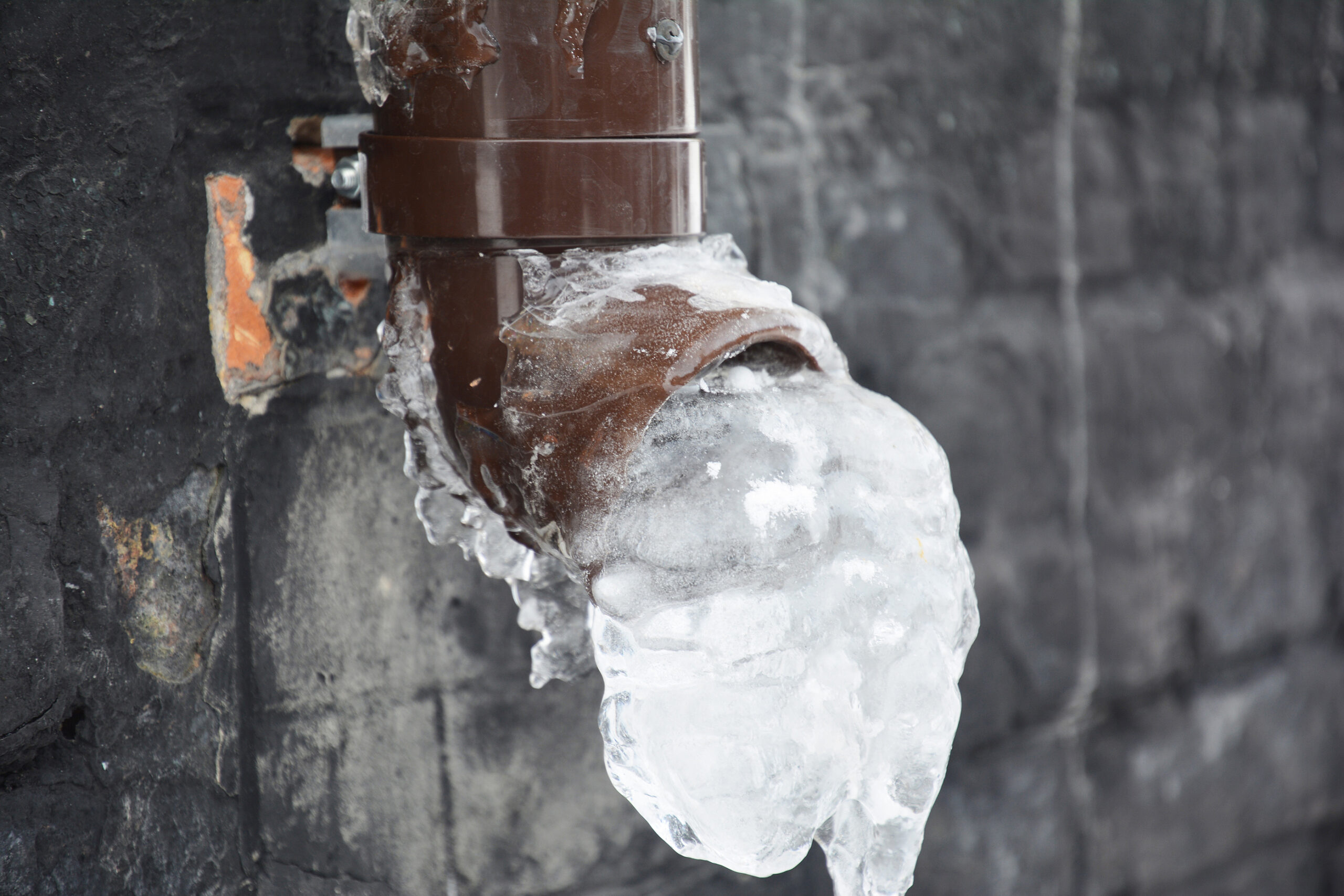Nearly everybody seems to have their personal theory on the subject of How To Avoid Freezing Pipes.

Winter can damage your pipes, specifically by freezing pipelines. Here's just how to prevent it from happening and what to do if it does.
Intro
As temperatures decline, the risk of icy pipes rises, possibly bring about expensive repairs and water damages. Comprehending how to avoid frozen pipelines is essential for house owners in cold environments.
Prevention Tips
Insulating susceptible pipelines
Wrap pipes in insulation sleeves or utilize warm tape to safeguard them from freezing temperature levels. Concentrate on pipelines in unheated or exterior locations of the home.
Home heating techniques
Maintain indoor areas properly heated, especially areas with pipes. Open cabinet doors to enable cozy air to circulate around pipelines under sinks.
Exactly how to identify icy pipelines
Seek lowered water circulation from taps, uncommon odors or sounds from pipelines, and visible frost on subjected pipes.
Long-Term Solutions
Structural adjustments
Take into consideration rerouting pipes far from exterior wall surfaces or unheated areas. Include extra insulation to attic rooms, cellars, and crawl spaces.
Upgrading insulation
Purchase high-quality insulation for pipes, attic rooms, and walls. Correct insulation helps preserve constant temperatures and decreases the risk of frozen pipelines.
Safeguarding Exterior Plumbing
Yard hose pipes and outdoor taps
Detach and drain pipes garden hoses prior to winter season. Install frost-proof faucets or cover exterior faucets with insulated caps.
Understanding Frozen Pipes
What causes pipes to ice up?
Pipes freeze when revealed to temperatures listed below 32 ° F (0 ° C) for prolonged durations. As water inside the pipes ices up, it broadens, putting pressure on the pipeline wall surfaces and possibly creating them to break.
Dangers and damages
Icy pipelines can lead to supply of water disruptions, home damages, and costly repair services. Burst pipes can flood homes and create extensive architectural damages.
Indications of Frozen Piping
Recognizing icy pipes early can prevent them from bursting.
What to Do If Your Pipelines Freeze
Immediate actions to take
If you suspect icy pipes, keep faucets open up to eliminate stress as the ice thaws. Utilize a hairdryer or towels taken in warm water to thaw pipes gradually.
Final thought
Protecting against icy pipelines calls for proactive steps and quick feedbacks. By recognizing the reasons, indications, and preventive measures, homeowners can secure their pipes during winter.
Helpful Tips to Prevent Frozen Pipes this Winter
UNDERSTANDING THE BASICS: WHY PIPES FREEZE AND WHY IT’S A PROBLEM
Water freezing inside pipes is common during the winter months, but understanding why pipes freeze, and the potential problems it can cause is crucial in preventing such incidents. This section will delve into the basics of why pipes freeze and the associated problems that may arise.
THE SCIENCE BEHIND FROZEN PIPES
When water reaches freezing temperatures, it undergoes a physical transformation and solidifies into ice. This expansion of water as it freezes is the primary reason pipes can burst. As the water inside the pipe freezes, it expands, creating immense pressure on the walls. If the pressure becomes too great, the pipe can crack or rupture, leading to leaks and water damage.
FACTORS THAT CONTRIBUTE TO PIPE FREEZING
Low Temperatures: Extremely cold weather, especially below freezing, increases the risk of pipes freezing. Uninsulated or Poorly Insulated Pipes: Pipes located in unheated areas, such as basements, crawl spaces, or attics, are more prone to freezing. Insufficient insulation or lack of insulation altogether exacerbates the problem. Exterior Wall Exposure: Pipes running along exterior walls are susceptible to freezing as they encounter colder temperatures outside. Lack of Heating or Temperature Regulation: Inadequate heating or inconsistent temperature control in your home can contribute to frozen pipes. PROBLEMS CAUSED BY FROZEN PIPES
- Pipe Bursting: As mentioned earlier, the expansion of water as it freezes can cause pipes to burst, resulting in significant water damage.
- Water Damage: When pipes burst, it can lead to flooding and water damage to your property, including walls, ceilings, flooring, and personal belongings.
- Structural Damage: Prolonged exposure to water from burst pipes can compromise the structural integrity of your home, leading to costly repairs.
- Mold and Mildew Growth: Excess moisture from water damage can create a favorable environment for mold and mildew growth, posing health risks to occupants.
- Disrupted Water Supply: Frozen pipes can also result in a complete or partial loss of water supply until the issue is resolved.
WHY CERTAIN PIPES ARE MORE PRONE TO FREEZING
- Location: Pipes located in unheated or poorly insulated areas, such as basements, crawl spaces, attics, or exterior walls, are at higher risk of freezing.
- Exterior Pipes: Outdoor pipes, such as those used for irrigation or exposed plumbing, are particularly vulnerable to freezing as they are directly exposed to the elements.
- Supply Lines: Pipes that carry water from the main water supply into your home, including the main water line, are critical to protect as freezing in these lines can affect your entire plumbing system.
- Underground Pipes: Pipes buried underground, such as those connected to sprinkler systems or outdoor faucets, can be susceptible to freezing if not properly insulated.
https://busybusy.com/blog/helpful-tips-to-prevent-frozen-pipes-this-winter/

I am just very drawn to Winter Plumbing Precautions: Preventing Frozen Pipes and I really hope you liked the entire entry. Are you aware of someone else who is interested by the niche? Feel free to share it. We thank you for your readership.
Book